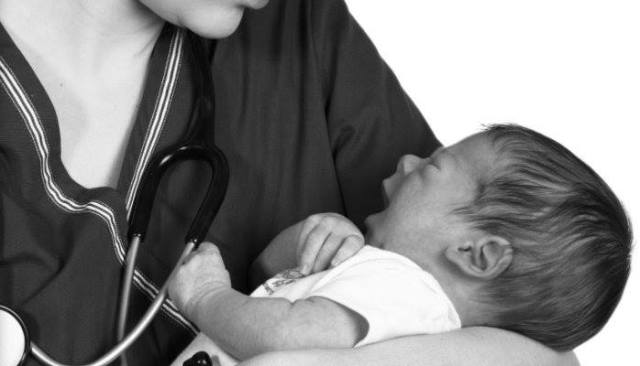When hiring overnight care, references, background checks and gut feeling are the most important things to check off your list. Because newborns and new parents have very special needs, here are 4 questions you may not have thought to ask:
1. Do you have your flu shot and vaccinations?
The American Academy of Pediatrics (AAP) calls the “mandatory immunization of all health care personnel an ‘ethical, just, and necessary’ means to improve patient safety.” Babies cannot receive a flu shot before 6 months of age so they are especially vulnerable to influenza. Be sure you and your newborn care provider get the flu shot!Hepatitis B, MMR (Measles, Mumps and Rubella) and TDaP (Tetanus, Diphtheria and Pertussis, also known as Whooping Cough) should all be current and documented in your child’s caregiver. According to the Centers for Disease Control, TDaP “is especially important for…anyone having close contact with a baby younger than 12 months.” Even if an adult has had the TDaP vaccine as a child, whooping cough boosters are recommended for adults.
2. How will you support my feeding decisions?
While your doula or nurse is likely very experienced, you are the expert in what’s best for your family. If breastfeeding is your goal, someone who can’t wait to cheer you on may be a priority for you. If formula is an option, you may want someone who’s also comfortable giving formula.
3. What kind of Experience, relevant Certifcates or Continuing Education do you have?
At Let Mommy Sleep, we try to stay away from saying what parents and caregivers should or shouldn’t do, but the one exception to this is in safety. For babies 0-1 year old, caregivers need to demonstrate thorough knowledge of basic safety, carseat safety and reducing the risk of SIDS. The AAP offers a comprehensive, free online course, which issues a certificate after completion which we encourage all parents and caregivers to take. First Aid and CPR Certification should also be a given for every caregiver. Other continuing education courses such as lactation support or early childhood milestones offered by regulated agencies show a caregiver’s commitment to their profession and an understanding that recommendations for baby care can change over time. Experience is another excellent indicator of commitment though, and there are many wonderful night nannies and newborn care providers without formal training. Just because someone has taken a newborn care training class doesn’t mean they’ve ever held a real baby. On the same note, it may give you added peace of mind to know that your postpartum caregiver or night nurse is accountable to a state or other governing agency. It’s important to note that only professionals who have completed Registered Nursing, Certified Nurse Midwife or other higher level Licensed Nursing degrees should be called “nurse” or “baby nurse.” Without these licensures, is actually illegal to use the term “baby nurse” in many states.
4. How will you soothe my baby?
Are you thinking you may be an attachment parent? Is sleep training important to you? Maybe a “wait and see” approach to newborn care feels more comfortable? Whatever your personal philosophy, you may wish to ask your night nurse or postpartum doula how s/he soothes baby. Someone who can explain many safe ways to comfort babies is not only demonstrating experience, but also that they understand that each child and family has different needs.
Whatever you decide, we hope that these questions help make your transition home with baby a happy and healthy one for your family.











